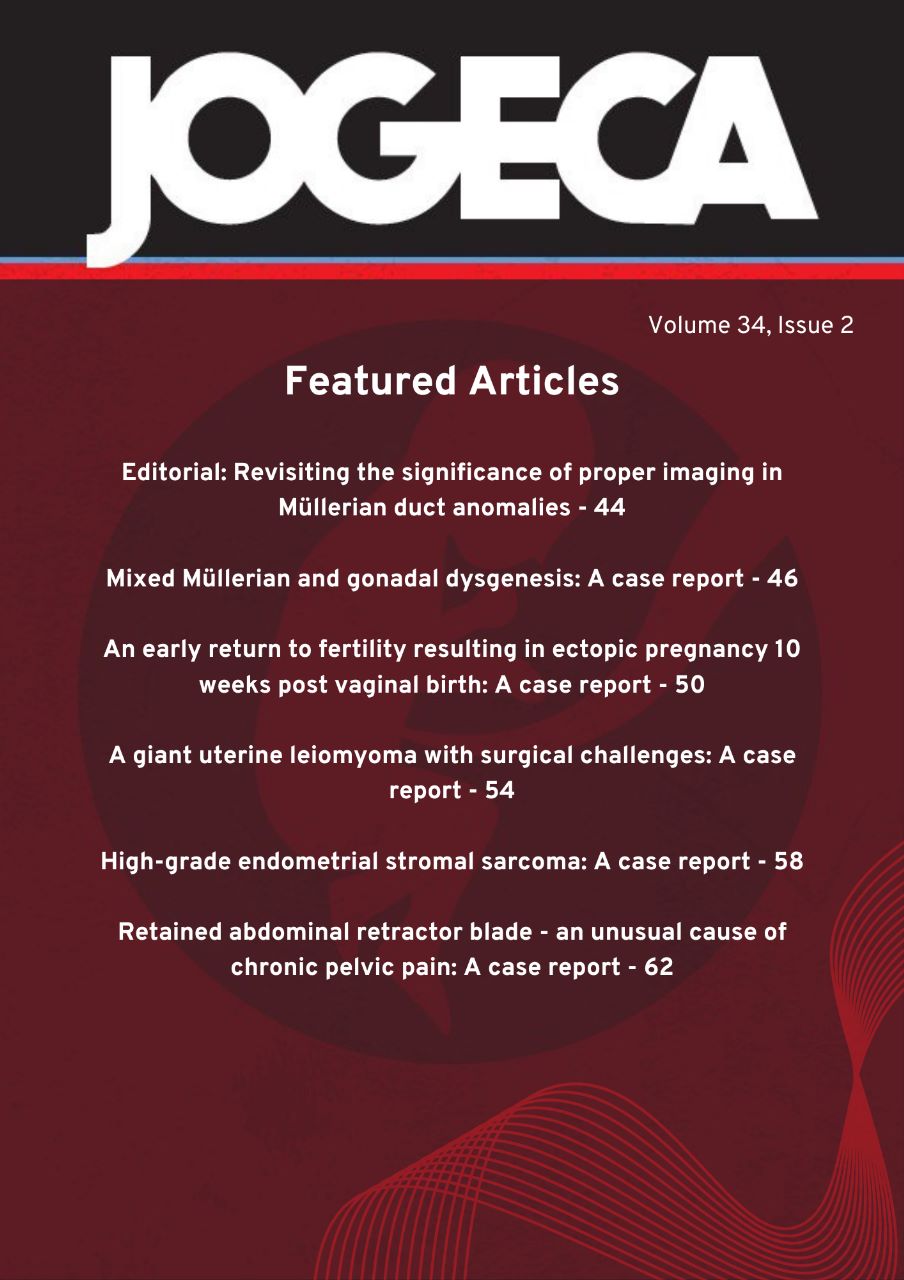Health system barriers to access to quality sexual and reproductive health and rights in relation to family planning and contraception
DOI:
https://doi.org/10.59692/jogeca.v36i1.311Abstract
Background: Access to reproductive health information and services is critical to health, well-being, and the ability to achieve personal and corporate life and work goals. Within the context of sexual and reproductive health rights (SRHR), the health system should adopt a life course approach to achieve a continuum of care. This spectrum needs to span from conception to the care of the aging woman across all contexts and must encompass humanitarian crises, climate change, and environmental exposures while embracing the ongoing digital transformation narrative. Current challenges relating to family planning and contraception (FPC) within the Kenyan context typically arise from highly prevalent unfavorable sociocultural norms and traditions.
Selected SRHR intervention programs: Programs that promote girls’ education and enhance community engagement to effect sociobehavioral change programing have high transformative potential. Some of these programs include the provision of contraception, adolescent, and youth-friendly programs (AYFS), intimate partner violence intervention programs, HIV prevention, use of multipurpose product technologies (MPT), prevention of abortion-related mortality, provision of access to maternity care, and continuous improvement of quality of care.
Conclusion: Obstetricians and gynecologists must commit to governance leadership that focuses on SMART advocacy, the establishment of health system resilience to provide access, effective coverage, and rights-based approaches. These are vital to the provision of optimal FPC care in Kenya.
Downloads
Published
How to Cite
Issue
Section
Categories
License
Copyright (c) 2024 The Authors.

This work is licensed under a Creative Commons Attribution 4.0 International License.




